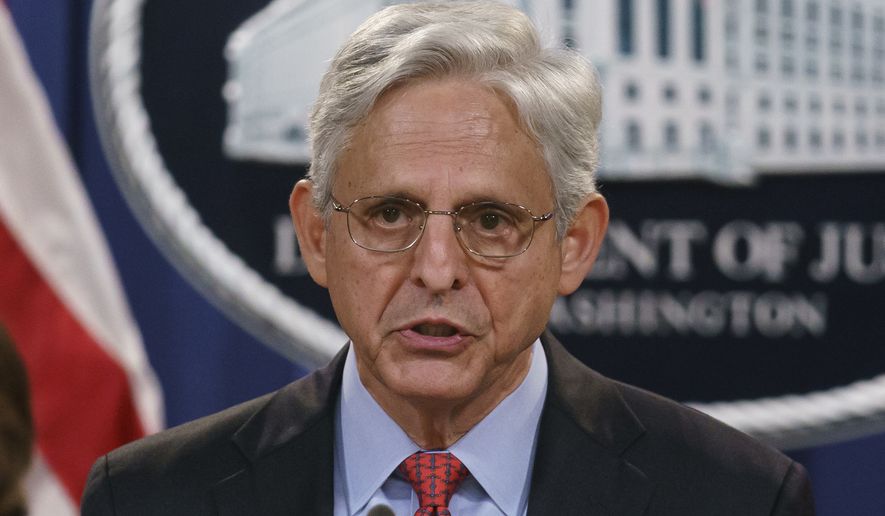Attorney General Merrick B. Garland on Monday announced new rules for how the federal government will monitor reforms by local law enforcement agencies under the Justice Department’s crackdown on police misconduct.
Mr. Garland discussed the changes, which include budget and term limits, during a virtual conference hosted by the International Association of Chiefs of Police Conference.
If a federal investigation reveals a “pattern or practice” of abusive or unconstitutional policing within an agency, a court can approve a consent decree requiring it to make reforms — which are then monitored by a team of federally-appointed watchdogs.
The attorney general says the probes and decrees have “led to significant improvements” in police departments, but some monitorships “have led to frustrations and concerns within the law enforcement community.”
The cost of these monitor groups — which usually include former police officials, advocates and attorneys — fall on local taxpayers and the bill can cost up to $2 million per year.
Consent decrees can last for several years and monitors are sometimes assigned to multiple police departments simultaneously, which has sparked concerns among police and residents about cost and conflict of interest.
Since Mr. Garland became attorney general in January, he has initiated “pattern or practice” probes into police departments in Minneapolis, Louisville and Phoenix.
Former President Trump barred consent decrees three years ago and then-Attorney General Jeff Session said in 2018 that they amounted to federal overreach.
Mr. Garland, however, restored them in April and also called for a review - which prompted Monday’s rule changes.
He said DOJ officials have since conducted more than 50 sessions with police chiefs and IACP members on how to improve monitorships.
The changes stemming from the four-month review include a limit on monitors’ fees and a ban on assigning monitors to multiple police agencies.
All monitors will also be subject to a set term limit which can only be renewed following a cost-effectiveness and performance review.
After five years, all consent decrees will have to undergo a court hearing “so that jurisdictions can demonstrate the progress it has made, and if possible, to move for termination,” according to the department.
Mr. Garland also said DOJ officials are working on compiling a list of best practices, assessment tools and training materials to “better standardize monitors’ work.”
Monitoring, he said, is a public service “and there should be no question that the monitors’ commitment is to the department and community they serve – not to their bottom line.”
• Emily Zantow can be reached at ezantow@washingtontimes.com.




Please read our comment policy before commenting.